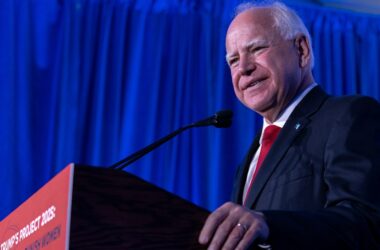As global financial markets remain in a state of flux, the Middle East has once again emerged as a focal point of uncertainty. In a parallel development, Finnish multinational telecommunications company Nokia has announced significant job cuts, further contributing to the intricate economic landscape. This article explores the impact of Middle East tensions on the world’s financial markets and delves into Nokia’s decision to reduce its workforce by 14,000 employees.
The Middle East has long been a region fraught with geopolitical tensions and conflicts. Recent developments have once again heightened concerns in the global financial sphere. Uncertainty over the future of the Iran nuclear deal, ongoing strife in Yemen, and the persistent Israeli-Palestinian conflict are among the factors that have roiled the region and, in turn, the world economy.
Oil prices, a key barometer of global economic health, are particularly sensitive to developments in the Middle East. The region is a major oil producer, and any disruption to the oil supply chain can have profound effects on energy prices. Investors and analysts are keeping a watchful eye on the situation, as a spike in oil prices could trigger inflationary pressures and dampen economic growth.
Furthermore, the Middle East’s geopolitical turmoil can also affect investor sentiment and risk appetite. Stock markets are susceptible to sudden fluctuations in response to heightened uncertainty, leading to increased volatility in investment portfolios. As the situation in the Middle East unfolds, investors are expected to remain vigilant and cautious.
In parallel to these regional tensions, Nokia, a prominent player in the telecommunications industry, has unveiled plans to cut a substantial number of jobs. The company’s decision to reduce its workforce by 14,000 employees comes as part of a strategic transformation effort. Nokia aims to realign its resources and invest in key growth areas such as 5G technology, cloud services, and digital infrastructure.
Nokia’s restructuring, while aimed at positioning the company for future success, raises concerns about the impact on its employees and the broader economy. Job cuts of this magnitude can have ripple effects on local communities and industries, leading to potential economic challenges. It is a move that will be closely monitored by investors and labor advocates alike.
In conclusion, as the Middle East remains a volatile region with ongoing conflicts and geopolitical tensions, financial markets around the world are navigating uncharted waters. The implications of these developments are far-reaching, from oil price fluctuations to investor sentiment. Simultaneously, Nokia’s decision to reduce its workforce significantly adds another layer of complexity to the global economic landscape. The future remains uncertain, and both investors and the international community will be closely watching for further developments in these two interconnected narratives.








